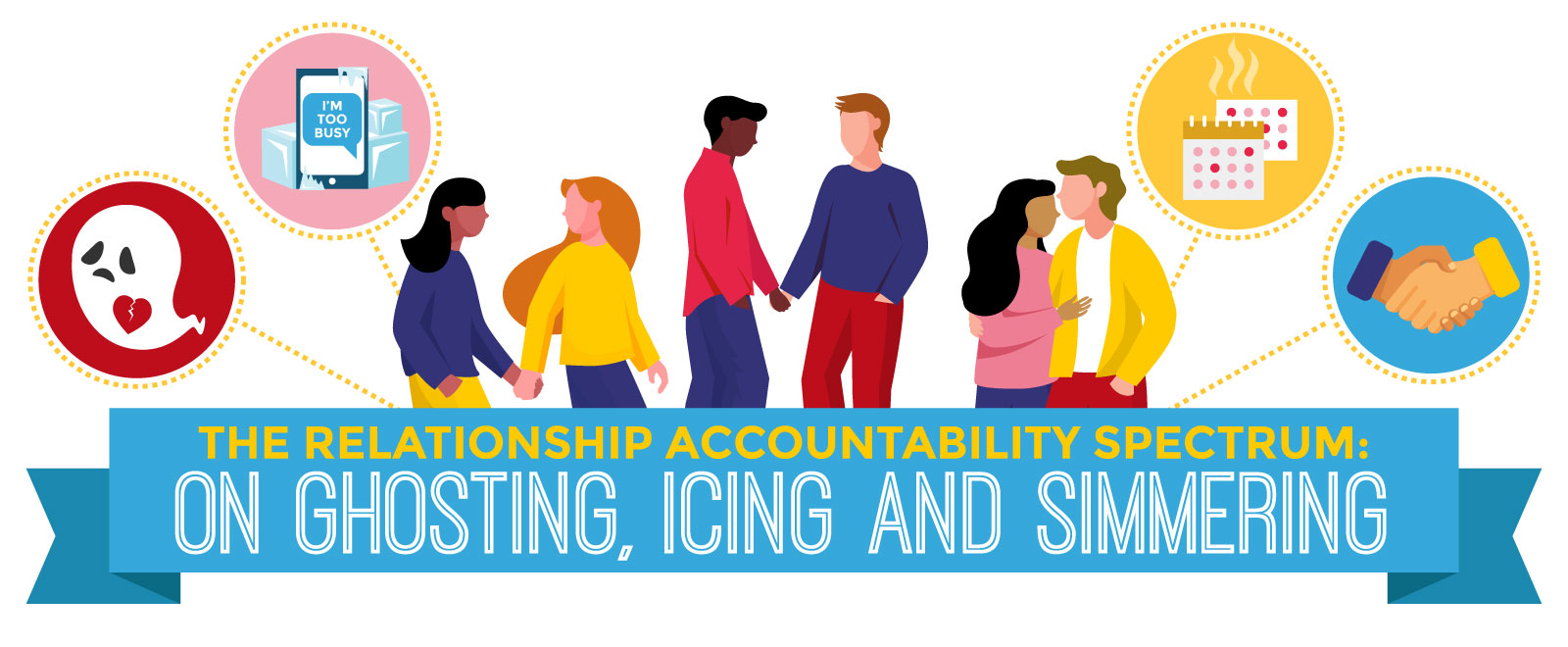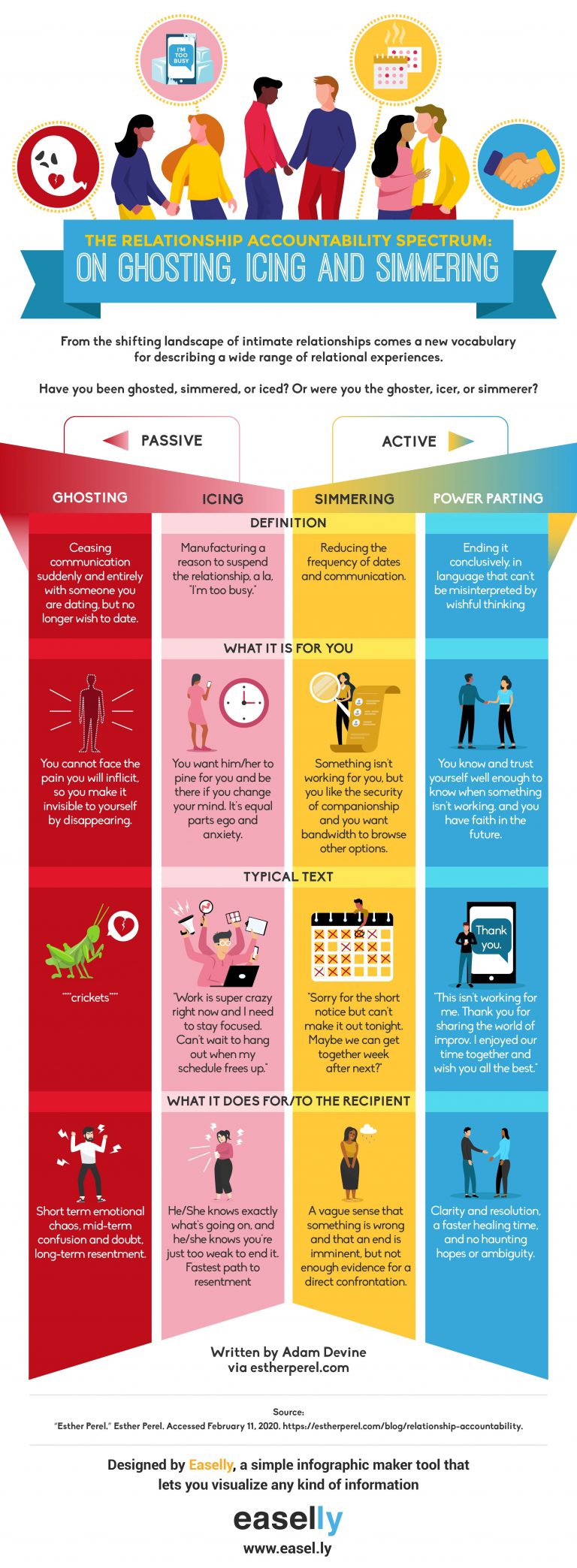It all starts with an unanswered text or call.
Or a text that reads “Sorry for the short notice but I can’t make it tonight. Maybe we can get together the weekend after next?”
Where are you in the relationship accountability spectrum?
You think the other person is too busy at the moment to respond to you, so no biggie.
Until one unanswered text turns into a couple of ignored emails, getting seen-zoned, and ultimately, no word from the other person for months (despite being active on social media). Crickets.
If you haven’t heard of the words ghosted, iced, or simmered in the context of dating and hookups, we’re not surprised.
While these words have been discussed and mentioned extensively in the pop culture lexicon and the modern-day dating and hookup scene, many are still in the dark behind these supposedly new ways of breaking up.
In fact, psychologists have only recently started to look into them.
According to Tara Collins, an associate professor of psychology at Winthrop University in Rock Hill, South Carolina, there are not many actual published papers (yet) on ghosting and similar relational experiences.
As Valentine’s Day draws near, we wanted to find out more. We turn to psychotherapist and New York Times bestselling author Esther Perel. She is recognized as one of today’s most insightful and original voices on modern relationships.
Understanding the relationship accountability spectrum
With our research on the subject, we stumbled upon what Dr. Perel calls as the relationship accountability spectrum.
Dr. Perel further advocates for better relationship accountability. Here’s an excerpt from her thoughts on the subject – Relationship Accountability and the Rise of Ghosting
Ghosting, icing, and simmering are manifestations of the decline of empathy in our society — the promoting of one’s selfishness, without regard for the consequences of others. There is a person on the other end of our text messages (or lack thereof), and the ability to communicate virtually doesn’t give us the right to treat others poorly.
I encourage you to end relationships respectfully and conclusively, however brief they may be. Act with kindness and integrity. This allows both people to enter into his/her next relationship with more experience and a clear head, rather than filled with disappointment and insecurity.
The Takeaway
How about you? Have you been ghosted, simmered, or iced? Or were you the ghoster, simmerer, or icer?
Being on the latter camp doesn’t automatically make you a “bad person”. People with good intentions can still be poor communicators. What’s more important is you start making steps towards acting with kindness and integrity the next time you’re about to end a relationship or dating cycle, however brief it was.
Curious about infographics on relationships we’ve done in the past? Here you go:
- The Cost of Falling In and Out of Love: An Infographic
- Do Long Distance Relationships Really Work: An Infographic
Finally, you can use the infographics as long as there’s proper attribution or let our infographic design service team make one for you.
You can also make your own using our infographic maker tool. Happy creating!

